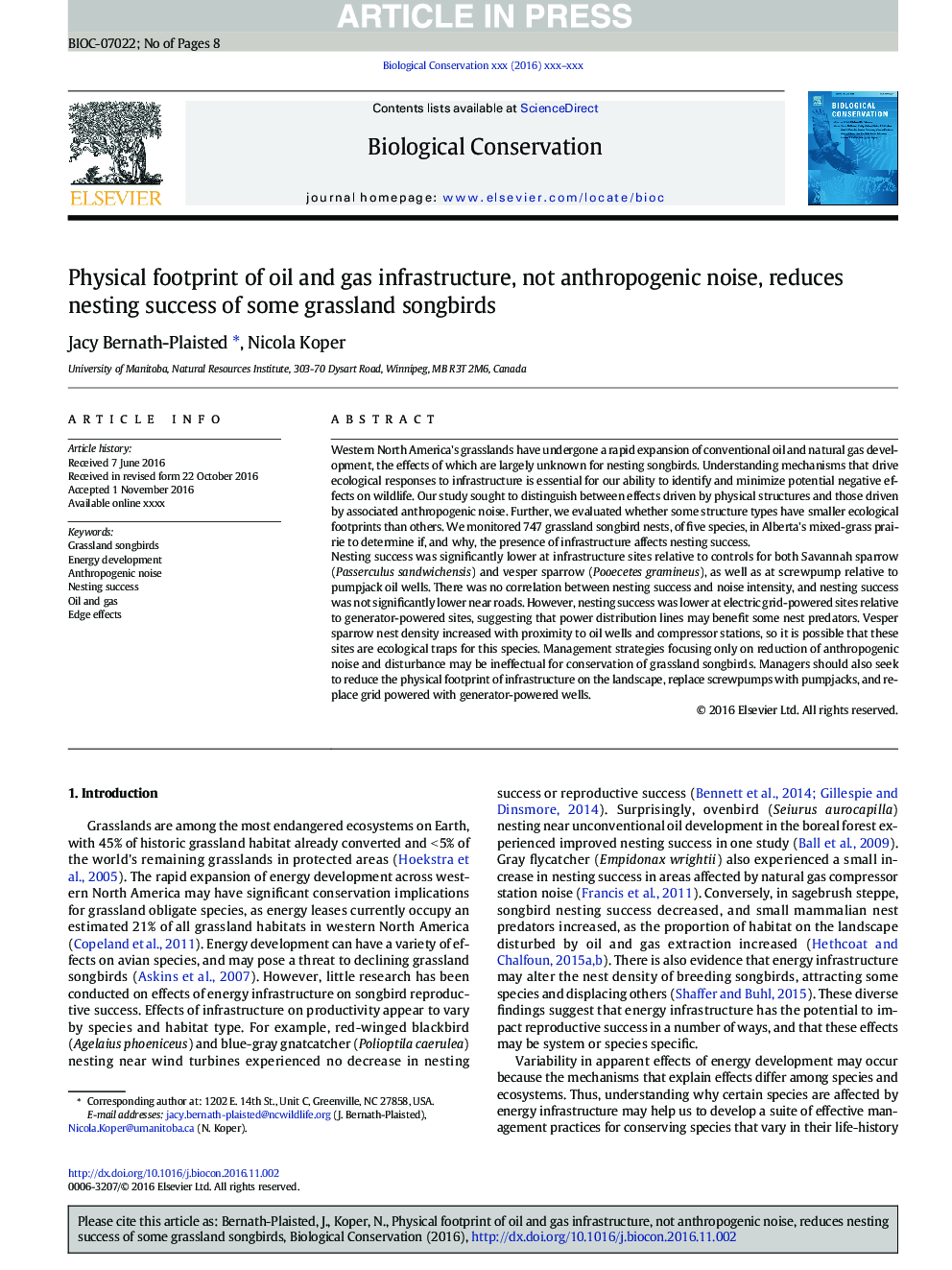| کد مقاله | کد نشریه | سال انتشار | مقاله انگلیسی | نسخه تمام متن |
|---|---|---|---|---|
| 5743421 | 1412305 | 2016 | 8 صفحه PDF | دانلود رایگان |
عنوان انگلیسی مقاله ISI
Physical footprint of oil and gas infrastructure, not anthropogenic noise, reduces nesting success of some grassland songbirds
ترجمه فارسی عنوان
رد پای فیزیکی زیرساخت های نفت و گاز، نه سر و صدای انسانی، باعث کاهش موفقیت برخی از پرندگان پرورش علف های هرز می شود
دانلود مقاله + سفارش ترجمه
دانلود مقاله ISI انگلیسی
رایگان برای ایرانیان
کلمات کلیدی
پرنده های پرندگان علفی، توسعه انرژی، سر و صدای انفعالی، پیوستن به موفقیت، نفت و گاز، اثرات لبه،
موضوعات مرتبط
علوم زیستی و بیوفناوری
علوم کشاورزی و بیولوژیک
بوم شناسی، تکامل، رفتار و سامانه شناسی
چکیده انگلیسی
Nesting success was significantly lower at infrastructure sites relative to controls for both Savannah sparrow (Passerculus sandwichensis) and vesper sparrow (Pooecetes gramineus), as well as at screwpump relative to pumpjack oil wells. There was no correlation between nesting success and noise intensity, and nesting success was not significantly lower near roads. However, nesting success was lower at electric grid-powered sites relative to generator-powered sites, suggesting that power distribution lines may benefit some nest predators. Vesper sparrow nest density increased with proximity to oil wells and compressor stations, so it is possible that these sites are ecological traps for this species. Management strategies focusing only on reduction of anthropogenic noise and disturbance may be ineffectual for conservation of grassland songbirds. Managers should also seek to reduce the physical footprint of infrastructure on the landscape, replace screwpumps with pumpjacks, and replace grid powered with generator-powered wells.
ناشر
Database: Elsevier - ScienceDirect (ساینس دایرکت)
Journal: Biological Conservation - Volume 204, Part B, December 2016, Pages 434-441
Journal: Biological Conservation - Volume 204, Part B, December 2016, Pages 434-441
نویسندگان
Jacy Bernath-Plaisted, Nicola Koper,
